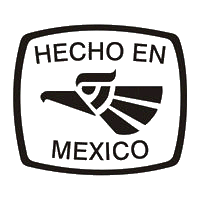









Copyright 2010. All Rights Reserved.Cafe-Mexico


what is tequila
The Café México was founded out of love for the tradition by an old Mexican legend:
"A large agave met a flash, tore the heart out crops and left it in flames.
Amazed, the people saw, as in the inside plant nectar arose.
They drank it in fear and reverence and regarded him as a gift from the gods."
Get the myth and a piece of Mexican culture to your home.
Get away to Mexico!
Indulge your senses with fine, delicate and high-quality Tequila made from 100% Agave.
Enjoy Mexico's lifeblood!
Let inaugurate in the mysteries of tequila: Tequila Blanco (white), Tequila Reposado
(rested) and Tequila Anejo (aged).
Find your personal taste, we would be very happy to advise you.
Your Café México
History
About 1,000 years ago the Aztecs
made pulque from the fermented agave juice. This pulque which today is
still sold in Mexican Pulquerias is the predecessor of the Tequila. In
the 16th century some Spaniards brought the distillation process into
the country. People were very satisfied with a new agave brand called
"Vino Mezcal", which they had finally created after some experiments.
At the beginning of the 19th century people began to cultivate the
agave around the Mexican city Tequila, and the "Vino Mezcal" of this
region took on the name of its cultivation area - Tequila.
What is Tequila?
Tequila is a special kind
of the "Vino Mezcal", a spirit made from agaves. But the Tequila is
exclusively produced from one plant only, the blue Weber Agave. It may
only be produced in Mexico, in fact in five Mexican regions: in the
state of Jalisco as well as in certain towns of the states of Nayarit,
Michoacán, Guanajuato and Tamaulipas.
If the agave liquid is distilled
outside these five regions but according to the same process it has to
be named Mezcal (which is very often accompanied by a worm inside the
bottle).
Production
The "Blue Agave" needs about 8
to 12 years until it has fully grown up and can be reaped by the
"Jimador". The plant is dig up and the pointed leaves are torn off, so
that there is only the heart left. The heart has got a weigh of up to
160 pounds and called "Piña" because it looks like a pineapple.
Traditionally the "Piña" are
cut into pieces and cooked in brick or concrete heater, the "Hornos",
in which they stay between 24 and 36 hours and are finally squeezed
out. During this procedure they give off the so-called honey water or
"Aqua Miel" which can then be fermented to distillable alcohol.
Now the time has come to decide
if pure Tequila from 100% Blue Agave or a "Mixto" shall be produced.
For 100% Agave Tequila only Agave juice and natural ferment yeast is
used. In the case of "Mixto" it is allowed now to add other sort of
sugar to the 51% Agave juice. After the fermentation the liquid which
is called "Mosto" gets distilled - according to Mexican Law twice.
The spirit which is created during the second distillation is Tequila in its clearest form, the so called Blanco Tequila.
